By Maya Gurarie, Digital Experience Specialist
Estimated reading time: 9 minutes
Join Internet2 staff and community members at the ACM Practice & Experience in Advanced Research Computing (PEARC) conference. This year’s theme is “Evolution Across All Dimensions.” The event will be held virtually from 8 a.m. Monday, July 19 through 3 p.m. Thursday, July 22 PDT. Internet2 is a proud sponsor of this event, so come talk to us at our virtual booth. The Cyberinfrastructure (CI) community will explore the current practice and experience in advanced research computing including modeling, simulation, and data-intensive computing.
“The PEARC conference serves as the RCD community’s primary opportunity to gather and connect with each other. While the conference is virtual again this year, we will come together to discuss challenges, opportunities, solutions, and best practices,” said Dana Brunson, the Internet2 Executive Director for Research Engagement.
Schedule of Events
Internet2 Is at PEARC, come join us at a number of sessions we’re involved in!
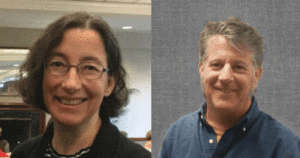 Dana Brunson and Patrick Schmitz
Dana Brunson and Patrick Schmitz
WORKSHOP: Building a Strategic Plan for your Research Computing and Data Program
Monday, July 19, 8:00 a.m. – 11:00 a.m. PDT
Presenters: Patrick Schmitz, Claire Mizumoto, Dana Brunson, Douglas Jennewein, Scotty Strachan
This workshop will gather Research Computing and Data (RCD) professionals to learn leading practices for developing effective strategic plans for their RCD programs. The workshop is open to RCD professionals who are familiar with issues around supporting Research Computing and Data, have experience contributing to strategic planning, and have some exposure to the RCD Capabilities Model. Finally, participants will develop a shared community resource to support strategic planning for RCD.
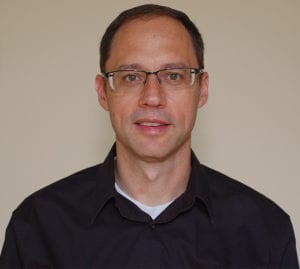 Timothy Middlekoop
Timothy Middlekoop
CLASS Poster Session: Implementing HPC on Google Cloud with SLURM & Kubernete
Monday, July 19 – Thursday July 22, 9:00 a.m. – 5:00 p.m. PDT
Presenters: Bala Desinghu and Timothy Middelkoop
The public clouds are capable of provisioning large-scale computational resources. This is helpful for the academic community when there is an immediate need to seek for computational resources beyond the campus facilities. However, the community has to learn the basics of cloud computing.
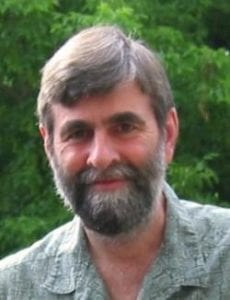 Tom Barton
Tom Barton
WORKSHOP: Fifth Workshop on Trustworthy Scientific Cyberinfrastructure (TrustedCI@PEARC21)
Monday, July 19 • 8:00 a.m. – 11:00 a.m. PDT
Session presented by Tom Barton on Monday, July 19, 10:20 a.m.
How InCommon is helping its members to meet NIH requirements for federated credentials
The NIH is in the process of implementing stronger requirements on credentials used to access services related to grants management and sensitive data access. The objective of the presentation is to make more people aware of the emergence among InCommon members of support for strong authentication, identity proofing, and other protections for their federated credentials.
 Dana Brunson
Dana Brunson
WORKSHOP: What does it mean to be a Campus Champion?
Monday, July 19 • 12:00 p.m. – 3:00 p.m. PDT
Presenters: Shelley Knuth, Jay Alameda, Torey Battelle, Dana Brunson, Tom Cheatham, Douglas Jennewein
The importance of research computing and data infrastructure for scientific discovery has grown as research questions become more complicated. Some research computing groups are large, while others may be supported by only one or two staff members. For both of these groups, the Campus Champions program has provided knowledge exchange, professional development, and growth.
 Dana Brunson
Dana Brunson
An Evaluation of Cyberinfrastructure Facilitators Skills Training in the Virtual Residency Program
Tuesday, July 20 • 9:30 a.m. – 9:40 a.m. PDT
Presenters: Henry Neeman, Lorna Rivera, Lizanne DeStefano, Hussein Al-Azzawi, Dana Brunson, Patrick Clemins, Dirk Colbry, Calvin Frye, Sandra Gesing, Joshua Gyllinsky, Anna Klimaszewski-Patterson, Anchalee Phataralaoha, Todd Price, Mohammed Tanash and Daniel Voss
Cyberinfrastructure (CI) Facilitation amplifies the productivity of researchers engaged in computing-intensive and data-intensive investigations. CI Facilitators help researchers to adapt their workflows to CI resources, and teaches these researchers how to use these systems, bridging between researchers and technology experts. The Virtual Residency Program (VRP) has addressed this training gap since 2015, offering summer workshops that teach key CI Facilitation skills. The 2020 VRP workshop featured an external evaluation of the efficacy and value of the workshop. This paper examines the results of that evaluation, to determine the value of the VRP to the CI Facilitator community, and thus to the many researchers these CI Facilitators serve.
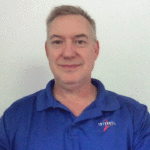 John Hicks
John Hicks
Workforce Development: Broadening the Reach for Access to Advanced Cyberinfrastructure – Accelerating Research and Education
Tuesday, July 20 • 10:00 a.m. – 10:10 a.m. PDT
Presenters: Forough Ghahramani, John Hicks, and Barr von Oehsen
Many smaller, mid-sized and under-resourced campuses, including MSIs, HSIs, HBCUs and EPSCoR institutions, have compelling science research and education activities. There is a growing awareness of the benefits associated with better access to cyberinfrastructure (CI) resources at these schools. The Eastern Regional Network’s (ERN) Broadening the Reach (BTR) working group is focusing on learning directly from the under-resourced academic institutions in the region on how to support them for research collaboration and advanced computing requirements. (Read a profile of John Hicks and learn about his efforts to expand access and bridge the gap for research.)
 Dana Brunson and Patrick Schmitz
Dana Brunson and Patrick Schmitz
BoF: Assessing and communicating cyberinfrastructure readiness at EPSCoR and under-resourced institutions
Tuesday, July 20 • 11:15 a.m. – 12:15 p.m. PDT
Presenters: Patrick Schmitz, Dana Brunson, Scotty Strachan, Venice Bayrd, Pips Veazey and Gwen Jacobs
This Birds of a Feather (BoF) group session is aligned with a PEARC21 workshop associated with the Research Computing and Data (RCD) Capabilities Model. This model allows institutions to assess their support for computationally- and data-intensive research, to identify potential areas for improvement, and to understand how the broader community views RCD support. Application of this model within National Science Foundation Established Program to Stimulate Competitive Research (NSF-EPSCoR) jurisdictions presents a set of potential challenges beyond typical expectations of model engagement and response quality.
 Dana Brunson and Patrick Schmitz.
Dana Brunson and Patrick Schmitz.
Panel: CaRCC – Campus Research Computing Consortium Town Hall
Wednesday, July 21 • 9:20 a.m. – 10:50 a.m. PDT
Presenters: Lauren Michael, Claire Mizumoto, Dana Brunson, Thomas Cheatham, Ruth Marinshaw, Patrick Schmitz and Scott Yockel
This panel will gather CaRCC leaders and community members to discuss recent products that CaRCC has supported. CaRCC is always interested to hear the concerns of our community and their ideas for what CaRCC can do to better support RCD Professionals. We will ensure there is plenty of time for audience questions and discussion, and we welcome all who are interested in CaRCC and our partner organizations in the community.
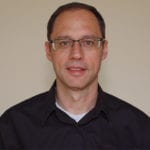 Timothy Middlekoop
Timothy Middlekoop
Panel: Cloud Facilitation in Research Computing and Data
Wednesday, July 21 • 9:20 a.m. – 10:50 a.m. PDT
Presenters: Timothy Middelkoop, Allissa Dillman, Alper Kinaci, Ananya Ravipati, Chris Lalande, John Mulligan, and Rob Fatland
Facilitating research in the cloud presents a unique set of challenges for Research Computing and Data professoinals. In this panel we focus on the tools, methods, and approaches used at various institutions to overcome challenges. Areas of discussion will include cloud training for facilitators and researchers, what workloads are appropriate (and not) for the cloud, the importance of adapting workloads for the cloud, managing the plethora of services and vendor lock in, and cost management.
 Tim Middlekoop
Tim Middlekoop
BoF: Quantifying the Research Computing and Data Professional Community for Attracting, Retaining, and Diversifying RCD Professionals
Wednesday, July 21 • 11:00 a.m. – 12:00 p.m. PDT
Presenters: Christina Maimone, Scott Yockel, Amy Neeser, Ashley Stauffer, Kimberly Grasch and Timothy Middelkoop
As facilitating research continues to increase and broaden, it is important to understand the state of Research Computing and Data (RCD) staffing across the country through more than anecdotal reports. Most institutions are isolated from one another with regards to sharing basic information on staffing roles, position types, and pay grades. A breakout group from the National Science Foundation Virtual Workshop on the Research Innovation Workforce for Cyberinfrastructure created and joined the CaRCC RCD Professionalization Working Group. They set out to better understand quantitatively the state of RCD staffing across the United States by designing a national survey. During the Birds of Feather panel, the working group will provide an overview of the current state of this work and solicit feedback from the audience on a number of topics.
Resources
If you are interested in learning more about Internet2 speakers at PEARC21, please send an e-mail to researchengagement@internet2.edu.